Back to Dessert Recipes


340m
Baked Donuts with Custard Filling

Author:
propercooking
TikTok
693K
14K
Baked Donuts with Custard Filling
This recipe guides you through making delicious, soft baked donuts filled with a creamy homemade vanilla custard. Unlike traditional fried donuts, these are baked for a lighter texture. The provided video is a short highlight reel, so detailed steps and realistic timings are included to ensure a successful baking experience. Please note that the full ingredients for the 'Chocolate Coating' mentioned in the original video description were not provided and therefore are not included in this recipe, allowing for a plain or powdered sugar finish.
#Donuts
#Baked
#Custard
#Dessert
#Sweet
#Homemade
#No-Fry
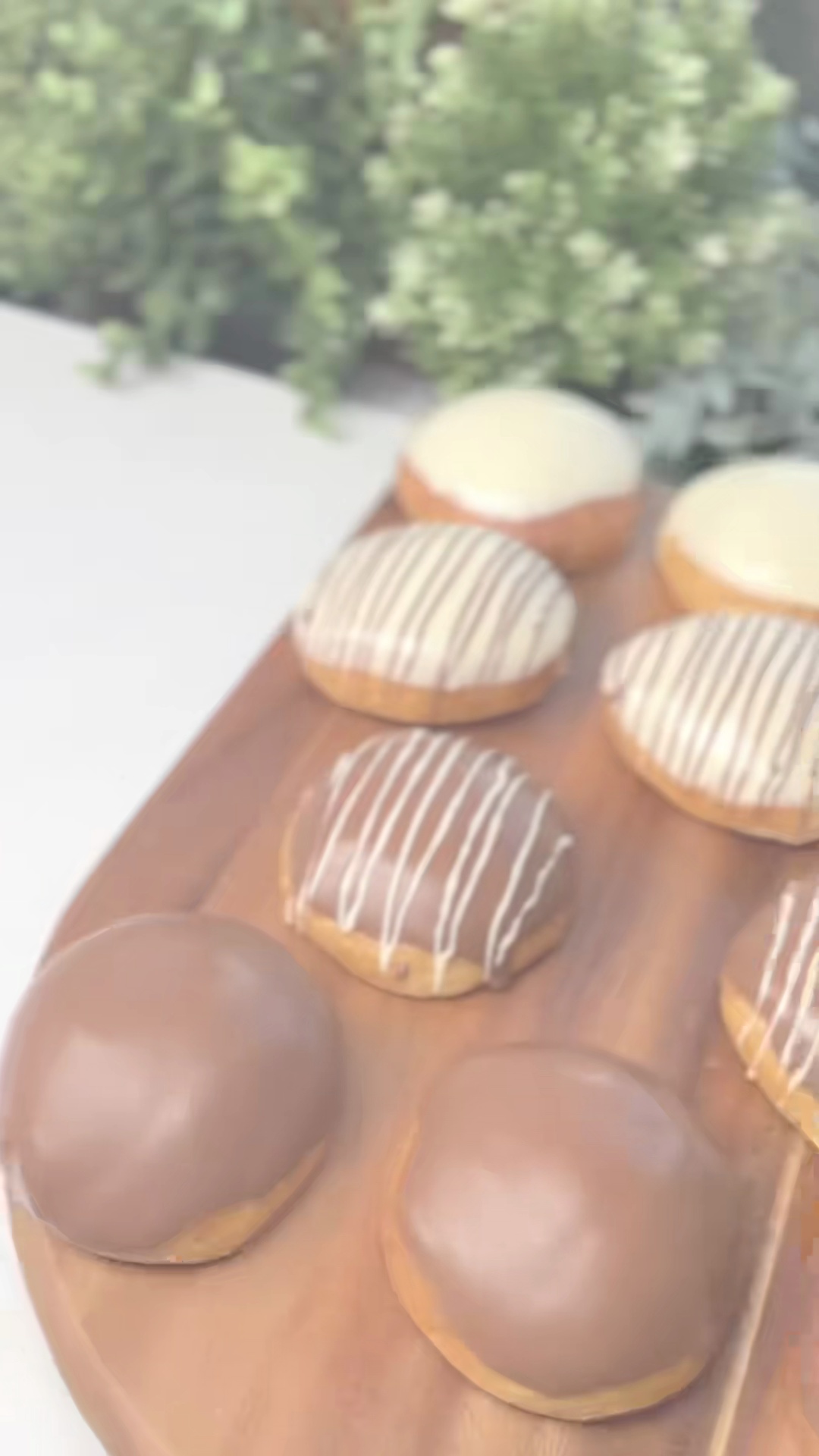
Assortment of finished custard-filled baked donuts
Recipe Information
1h 10m
Prep Time
15m
Cook Time
5h 40m
Total Time
12
Servings
Medium
Dessert
English
Nutrition (per serving)
350
Calories
6g
Protein
45g
Carbs
20g
Fat
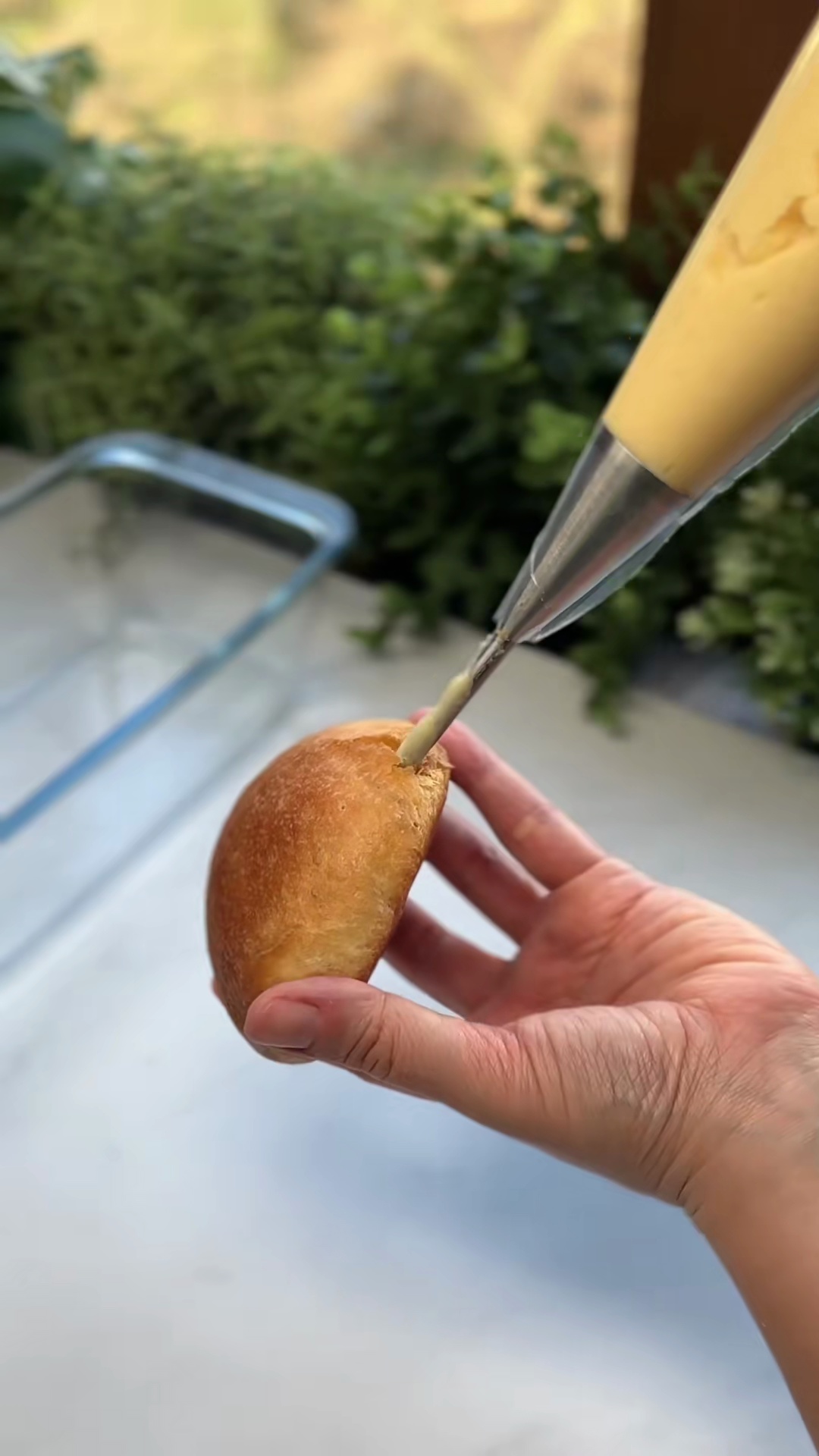
Close-up of a donut being filled with creamy custard
Ingredients
- Flour((2 ½ cups))300 g
- Salt((¼ tsp))1 g
- Milk(lukewarm (⅔ cup))160 ml
- Yeast((1 tsp))5 g
- Sugar((¼ cup))45 g
- Butter(melted (¼ cup))60 g
- Egg1 whole
- Oil(for greasing)as needed ml
- Egg Yolks3 yolks
- Sugar((½ cup) for custard)90 g
- Milk((1 ¾ cups) for custard)450 ml
- Flour((2 tbsp) for custard)30 g
- Salt((¼ tsp) for custard)1 g
- Vanilla extract((1 tsp))5 g
- Butter((2 tbsp) for custard)30 g
Servings: 12
💡 Tip: Check off ingredients as you add them to keep track of your progress!
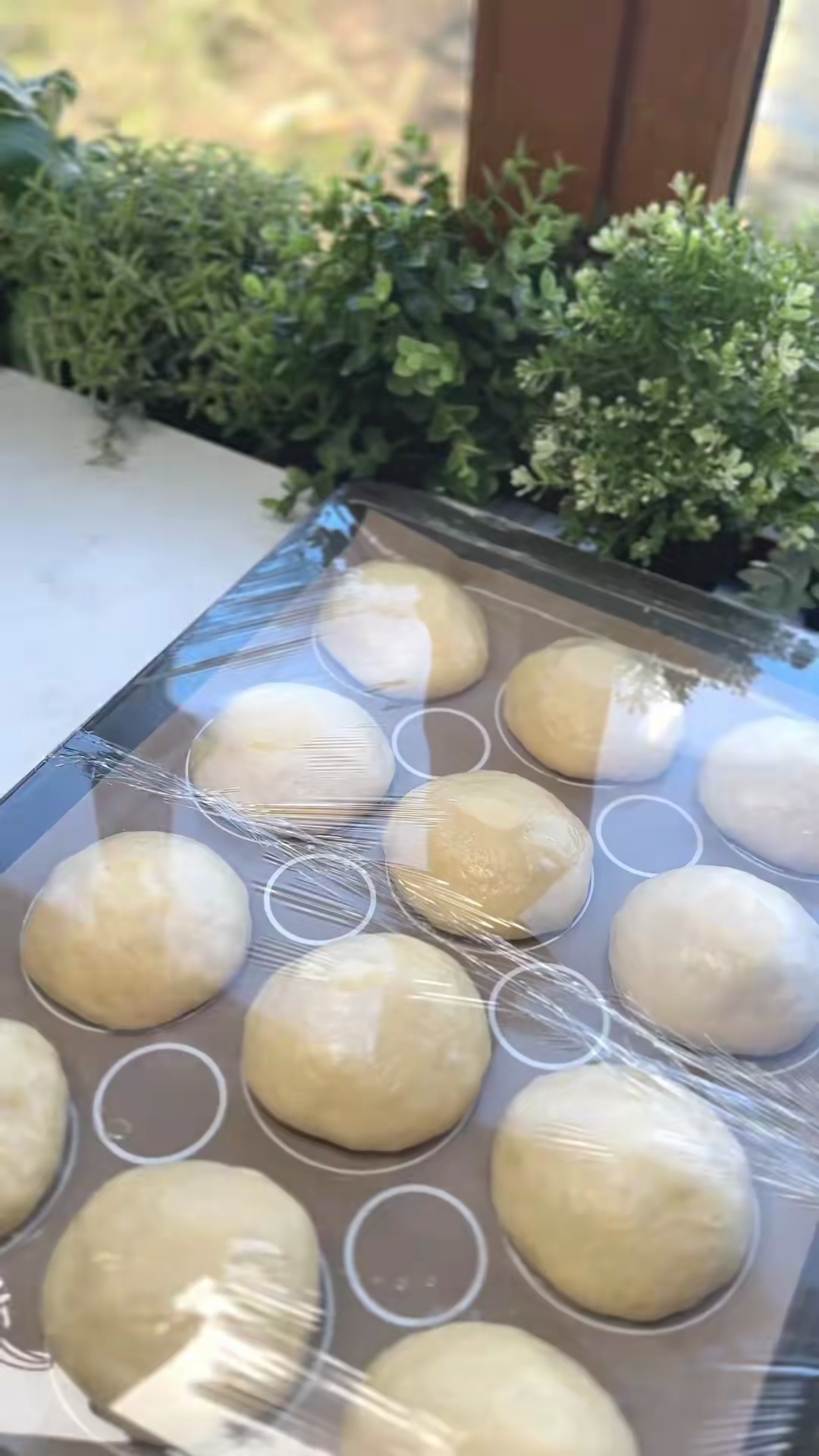
A plate of golden-brown baked donuts ready for filling
Instructions
0/15 completed
0%
- 1In a small bowl, combine lukewarm milk, yeast, and 1 teaspoon of sugar. Stir gently and let it sit for 5-10 minutes until foamy, indicating the yeast is active.10m
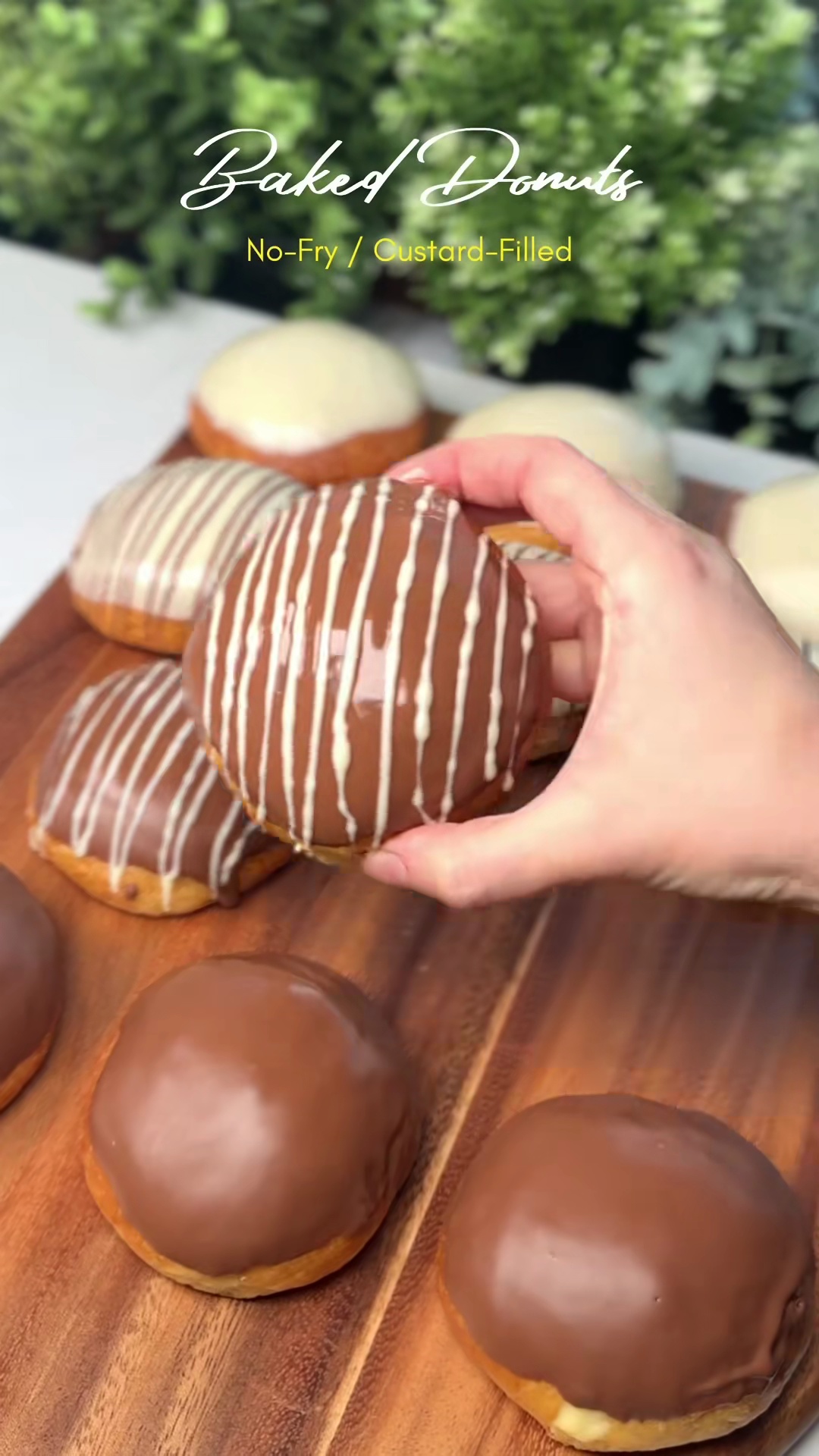 Preview10m
Preview10m PreviewIn a small bowl, combine lukewarm milk, yeast, and 1 teaspoon of sugar. Stir gently and let it sit for 5-10 minutes until foamy, indicating the yeast is active.Ensure milk is lukewarm (around 105-115°F or 40-46°C) to activate yeast properly. Too hot will kill it, too cold won't activate it.
PreviewIn a small bowl, combine lukewarm milk, yeast, and 1 teaspoon of sugar. Stir gently and let it sit for 5-10 minutes until foamy, indicating the yeast is active.Ensure milk is lukewarm (around 105-115°F or 40-46°C) to activate yeast properly. Too hot will kill it, too cold won't activate it. - 2In a large mixing bowl, whisk together the flour, remaining 44g of sugar, and 1g of salt for the donut dough.2m
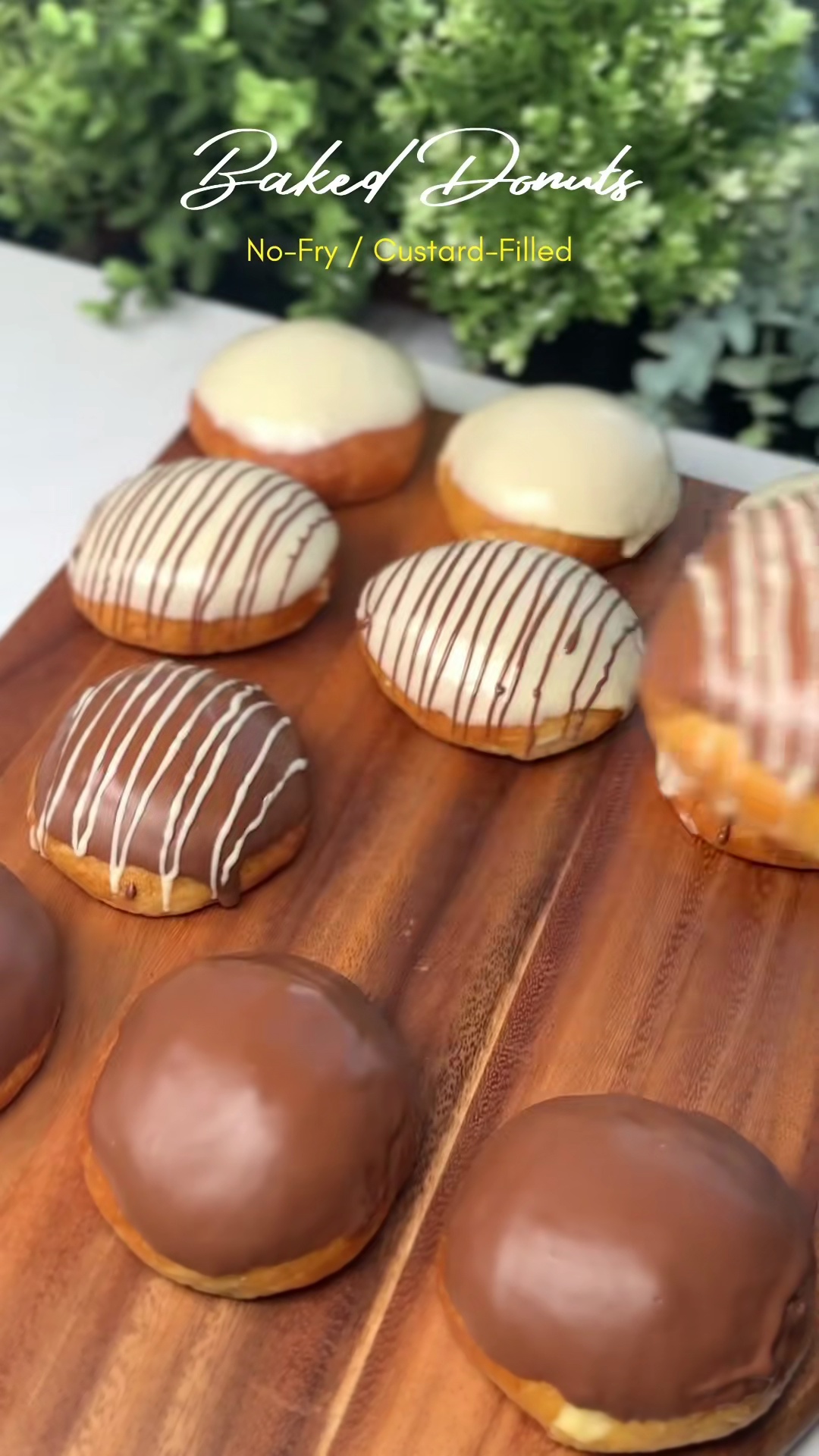 Preview2m
Preview2m PreviewIn a large mixing bowl, whisk together the flour, remaining 44g of sugar, and 1g of salt for the donut dough.Sifting flour can help create a lighter texture, but is optional.
PreviewIn a large mixing bowl, whisk together the flour, remaining 44g of sugar, and 1g of salt for the donut dough.Sifting flour can help create a lighter texture, but is optional. - 3Pour the activated yeast mixture, one egg, and 60g of melted butter into the dry ingredients. Mix with a spoon or spatula until a shaggy dough forms.5m
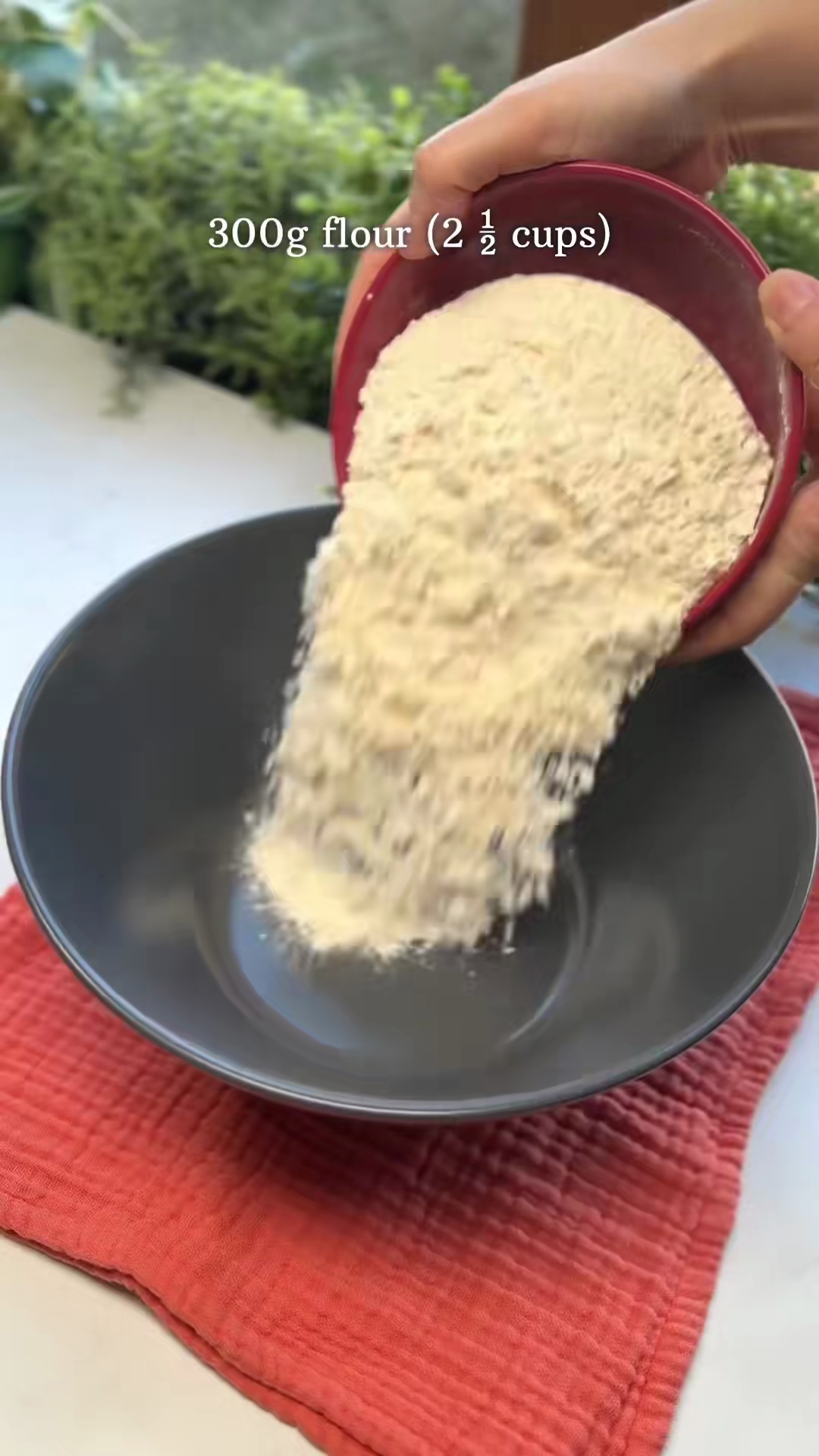 Preview5m
Preview5m PreviewPour the activated yeast mixture, one egg, and 60g of melted butter into the dry ingredients. Mix with a spoon or spatula until a shaggy dough forms.Make sure the melted butter isn't too hot, or it could affect the yeast.
PreviewPour the activated yeast mixture, one egg, and 60g of melted butter into the dry ingredients. Mix with a spoon or spatula until a shaggy dough forms.Make sure the melted butter isn't too hot, or it could affect the yeast. - 4Turn the dough out onto a lightly floured surface and knead by hand for 8-10 minutes, or until the dough is smooth, elastic, and no longer sticky. Alternatively, use a stand mixer with a dough hook for 5-7 minutes.10m
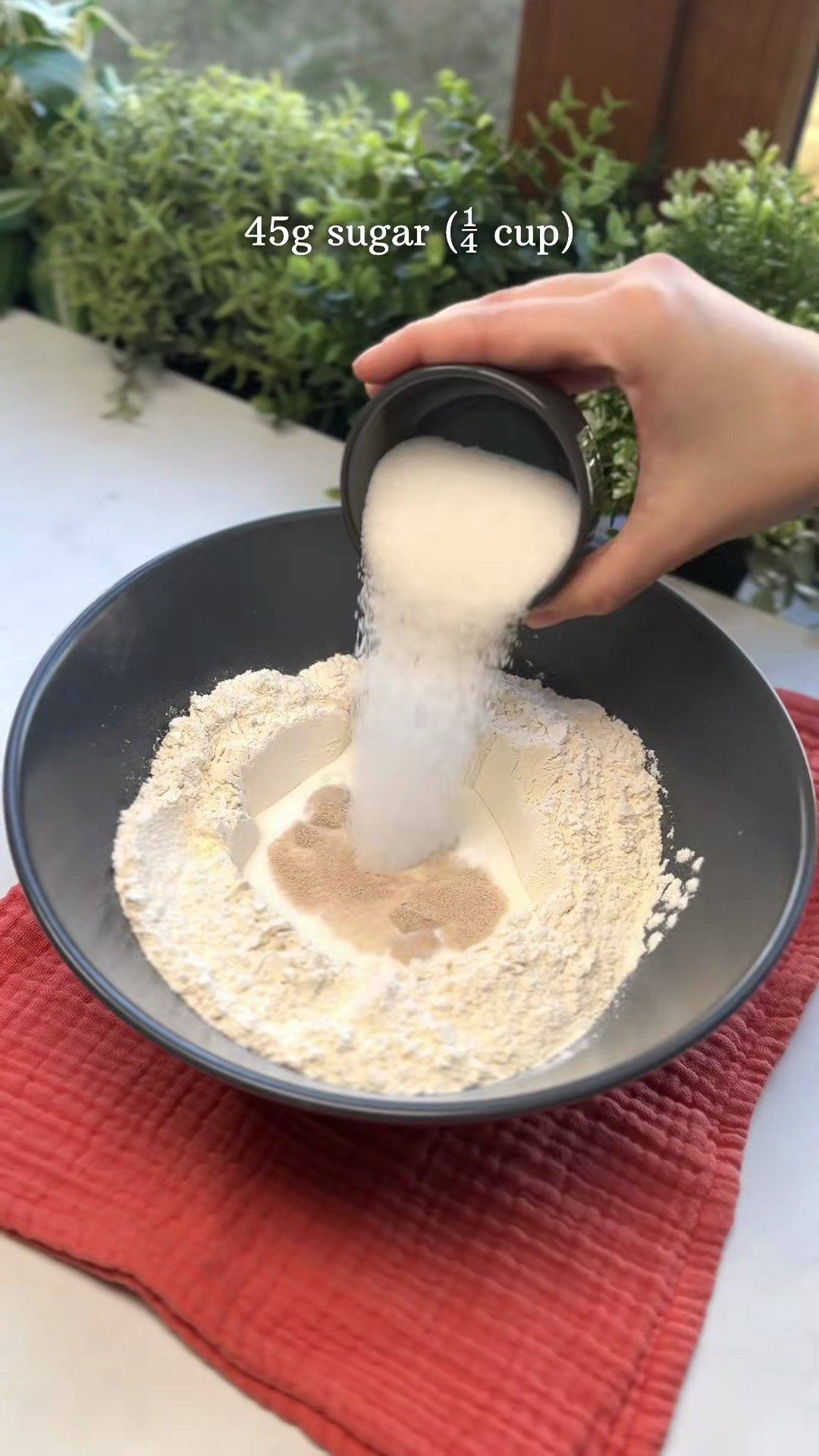 Preview10m
Preview10m PreviewTurn the dough out onto a lightly floured surface and knead by hand for 8-10 minutes, or until the dough is smooth, elastic, and no longer sticky. Alternatively, use a stand mixer with a dough hook for 5-7 minutes.Proper kneading develops the gluten, which is essential for soft, chewy donuts.
PreviewTurn the dough out onto a lightly floured surface and knead by hand for 8-10 minutes, or until the dough is smooth, elastic, and no longer sticky. Alternatively, use a stand mixer with a dough hook for 5-7 minutes.Proper kneading develops the gluten, which is essential for soft, chewy donuts. - 5Lightly grease a clean bowl with oil. Place the dough in the bowl, turning it once to coat. Cover the bowl with plastic wrap or a clean kitchen towel and let it rise in a warm place for 1 to 1.5 hours, or until doubled in size.1h 30m
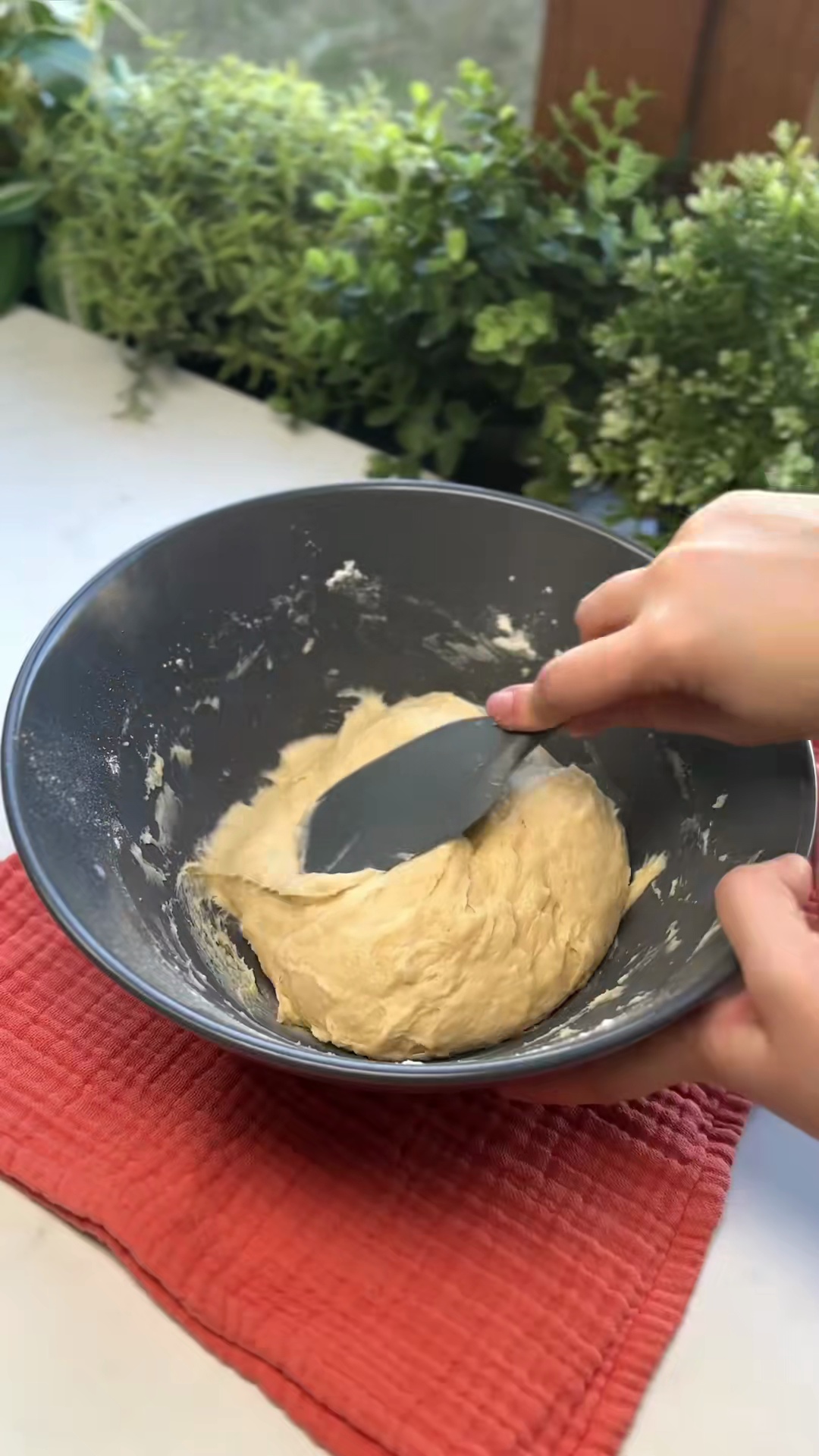 Preview1h 30m
Preview1h 30m PreviewLightly grease a clean bowl with oil. Place the dough in the bowl, turning it once to coat. Cover the bowl with plastic wrap or a clean kitchen towel and let it rise in a warm place for 1 to 1.5 hours, or until doubled in size.A warm oven (turned off) with the light on can be a good spot for proofing dough.
PreviewLightly grease a clean bowl with oil. Place the dough in the bowl, turning it once to coat. Cover the bowl with plastic wrap or a clean kitchen towel and let it rise in a warm place for 1 to 1.5 hours, or until doubled in size.A warm oven (turned off) with the light on can be a good spot for proofing dough. - 6Gently punch down the risen dough to release air. Transfer it to a lightly floured surface and roll it out to about 1/2 inch (1.25 cm) thickness. Use a donut cutter or two round cutters (one larger for the donut, one smaller for the hole) to cut out donut shapes.15m
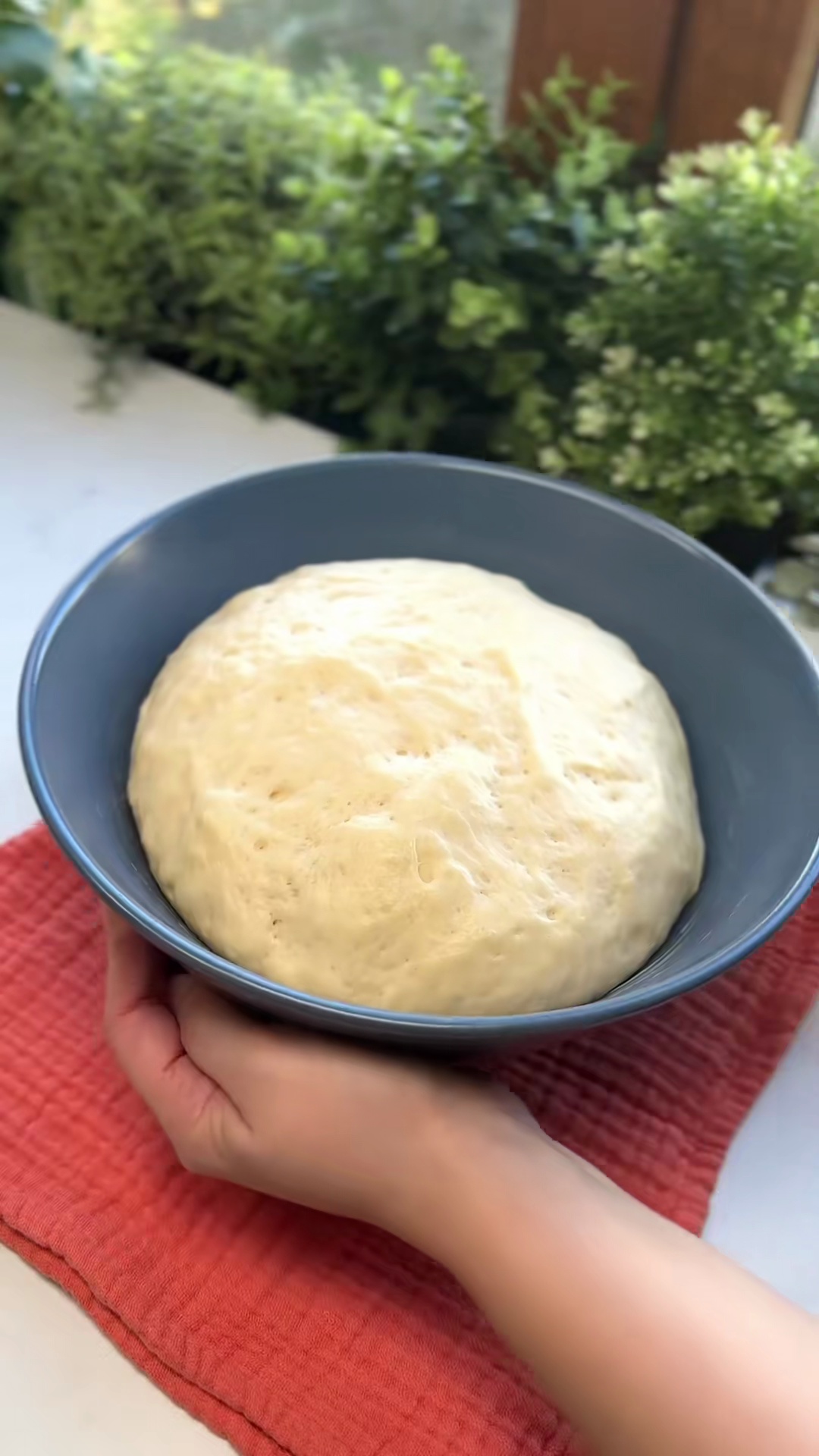 Preview15m
Preview15m PreviewGently punch down the risen dough to release air. Transfer it to a lightly floured surface and roll it out to about 1/2 inch (1.25 cm) thickness. Use a donut cutter or two round cutters (one larger for the donut, one smaller for the hole) to cut out donut shapes.Avoid overworking the dough during shaping to keep it tender. You can re-roll scraps once or twice.
PreviewGently punch down the risen dough to release air. Transfer it to a lightly floured surface and roll it out to about 1/2 inch (1.25 cm) thickness. Use a donut cutter or two round cutters (one larger for the donut, one smaller for the hole) to cut out donut shapes.Avoid overworking the dough during shaping to keep it tender. You can re-roll scraps once or twice. - 7Line a baking sheet with parchment paper. Carefully transfer the shaped donuts onto the prepared baking sheet, leaving some space between each. Cover them again with plastic wrap or a towel and let them rise for a second time for 30-45 minutes, until visibly puffy.45m
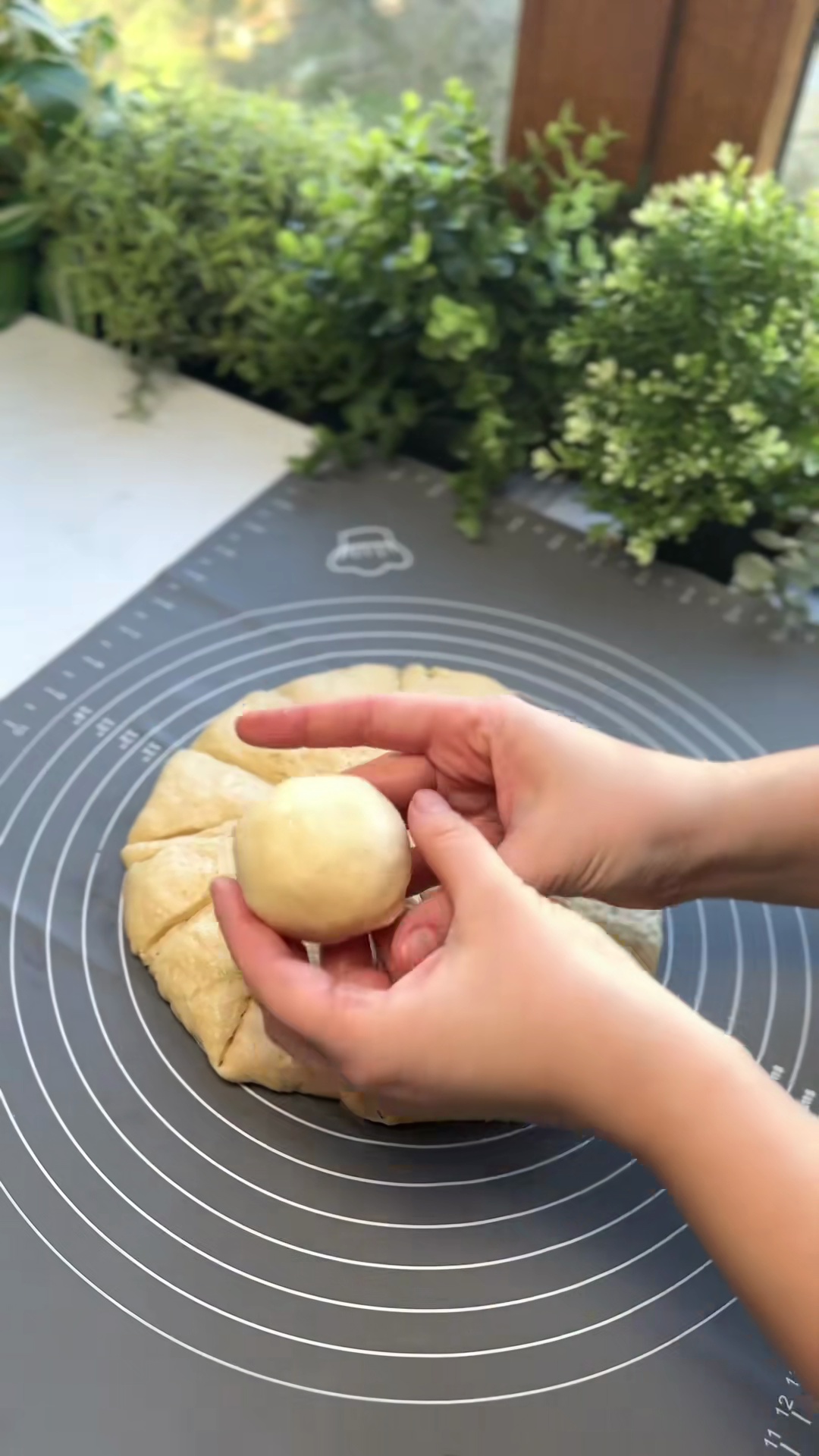 Preview45m
Preview45m PreviewLine a baking sheet with parchment paper. Carefully transfer the shaped donuts onto the prepared baking sheet, leaving some space between each. Cover them again with plastic wrap or a towel and let them rise for a second time for 30-45 minutes, until visibly puffy.The second proofing is crucial for light and airy baked donuts.
PreviewLine a baking sheet with parchment paper. Carefully transfer the shaped donuts onto the prepared baking sheet, leaving some space between each. Cover them again with plastic wrap or a towel and let them rise for a second time for 30-45 minutes, until visibly puffy.The second proofing is crucial for light and airy baked donuts. - 8While the donuts are proofing for the second time, preheat your oven to 180°C (350°F).10m
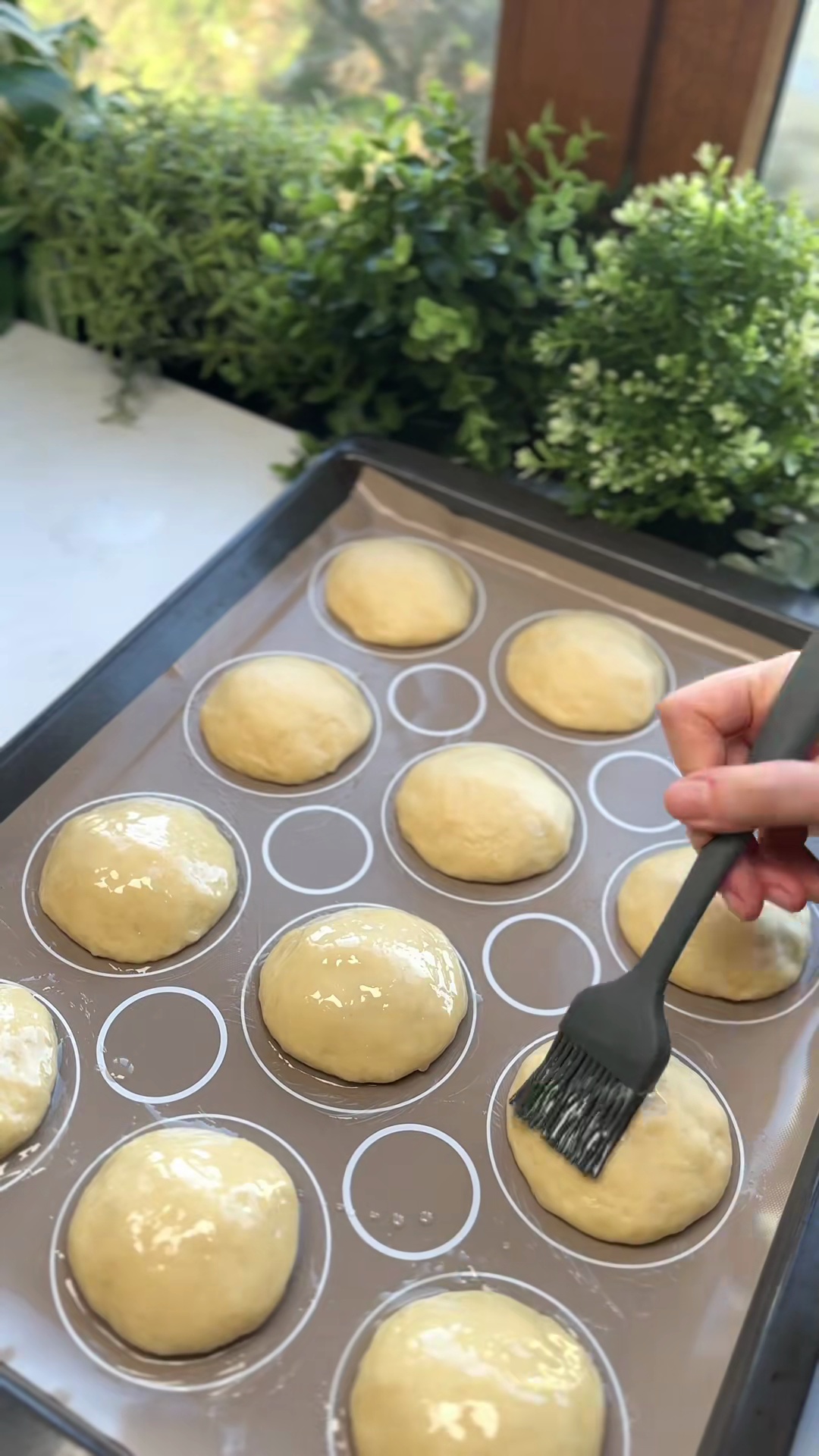 Preview10m
Preview10m PreviewWhile the donuts are proofing for the second time, preheat your oven to 180°C (350°F).Preheating ensures even baking from the start.
PreviewWhile the donuts are proofing for the second time, preheat your oven to 180°C (350°F).Preheating ensures even baking from the start. - 9Bake the donuts for 10-15 minutes, or until they are golden brown on top and cooked through. Remove them from the oven and transfer to a wire rack to cool completely.15m
 Preview15m
Preview15m PreviewBake the donuts for 10-15 minutes, or until they are golden brown on top and cooked through. Remove them from the oven and transfer to a wire rack to cool completely.Don't overbake, as it can make the donuts dry. They should be just lightly golden.
PreviewBake the donuts for 10-15 minutes, or until they are golden brown on top and cooked through. Remove them from the oven and transfer to a wire rack to cool completely.Don't overbake, as it can make the donuts dry. They should be just lightly golden. - 10To make the custard filling, in a medium saucepan, whisk together the 3 egg yolks, 90g sugar, 30g flour, and 1g salt until the mixture is pale and smooth.5m
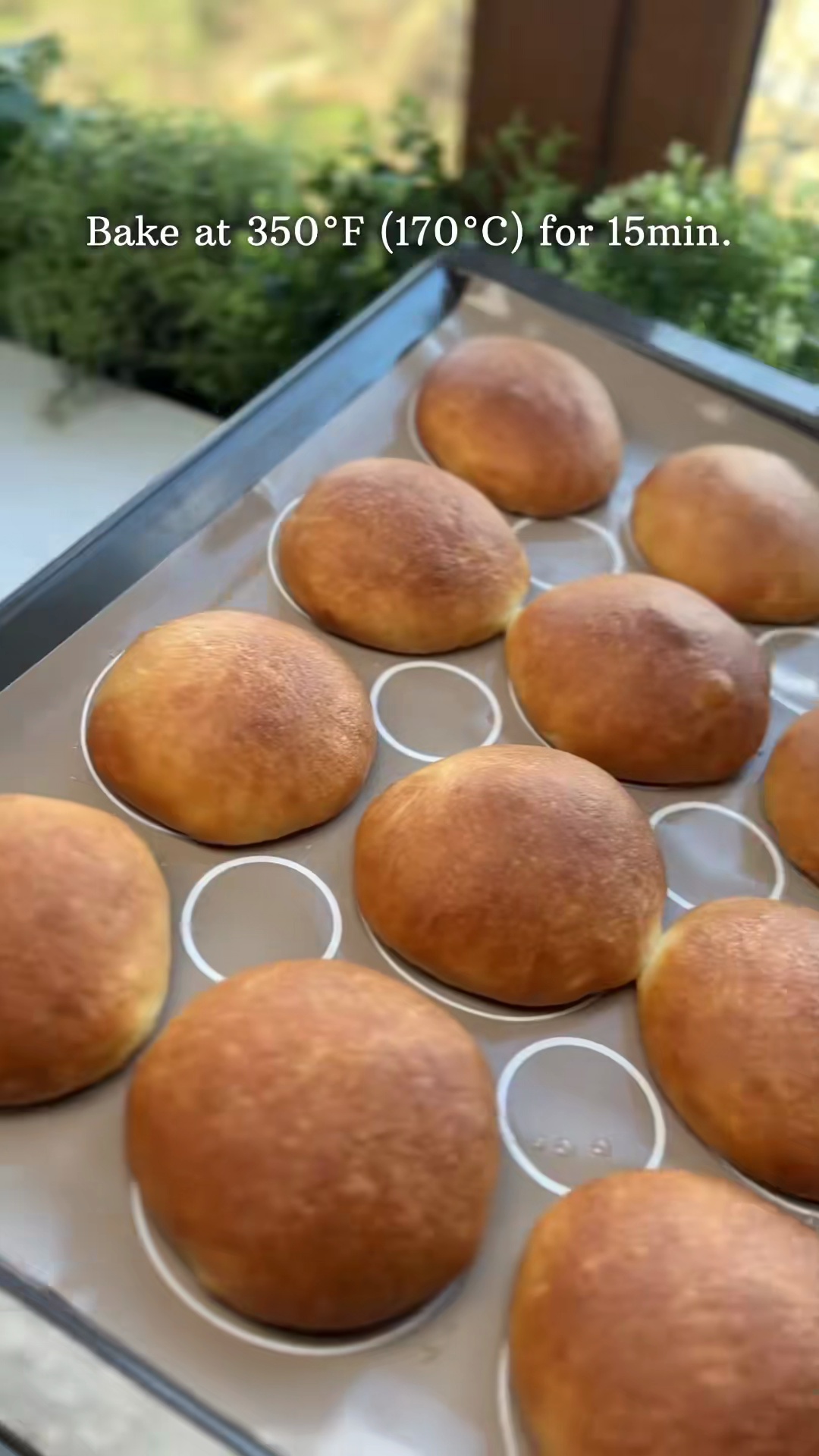 Preview5m
Preview5m PreviewTo make the custard filling, in a medium saucepan, whisk together the 3 egg yolks, 90g sugar, 30g flour, and 1g salt until the mixture is pale and smooth.Whisking thoroughly prevents lumps and ensures a smooth custard.
PreviewTo make the custard filling, in a medium saucepan, whisk together the 3 egg yolks, 90g sugar, 30g flour, and 1g salt until the mixture is pale and smooth.Whisking thoroughly prevents lumps and ensures a smooth custard. - 11In a separate pot, gently heat 450ml of milk until it just begins to simmer, but do not boil. Gradually pour about half of the hot milk into the egg yolk mixture, whisking constantly to temper the eggs.5m
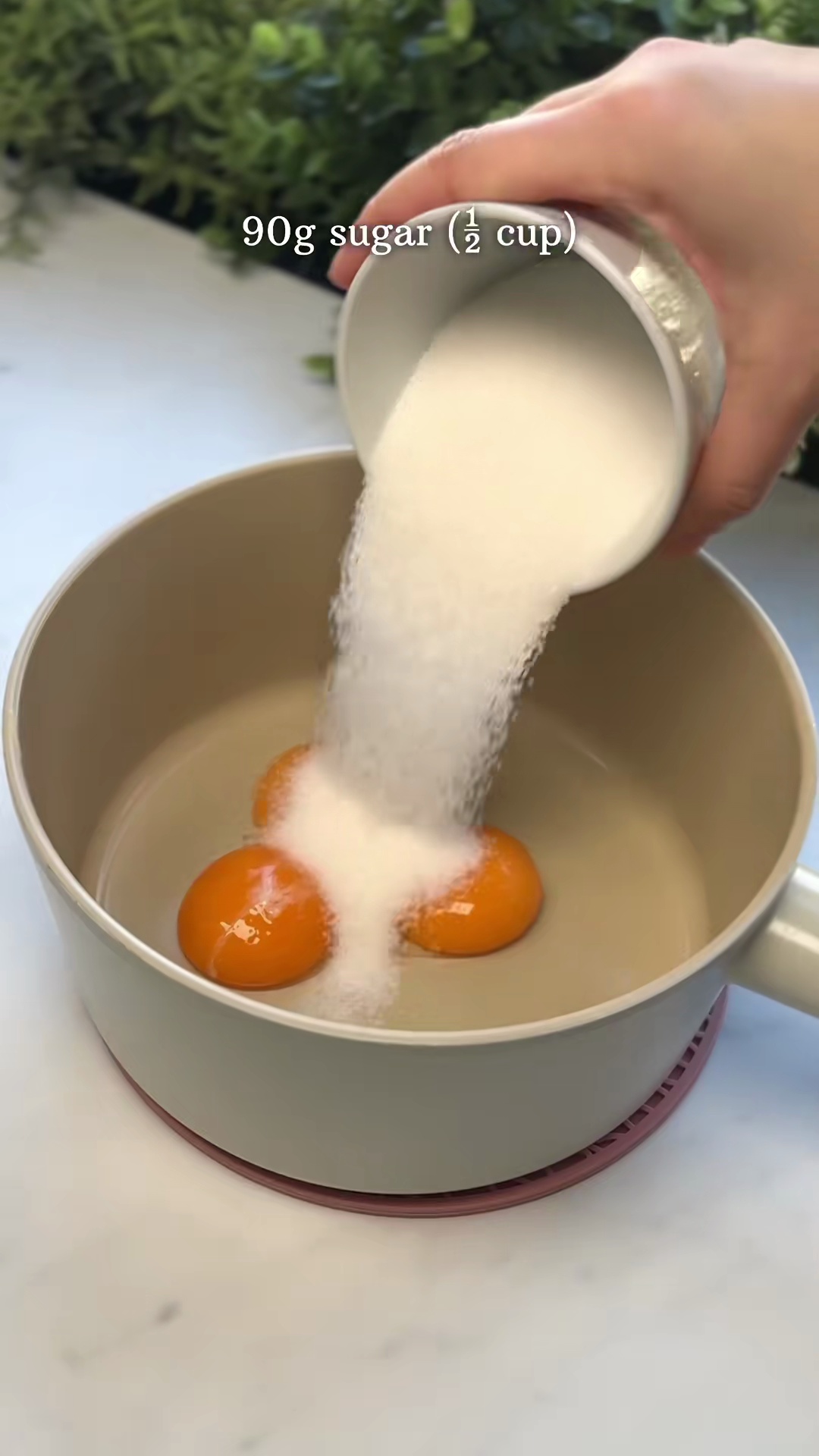 Preview5m
Preview5m PreviewIn a separate pot, gently heat 450ml of milk until it just begins to simmer, but do not boil. Gradually pour about half of the hot milk into the egg yolk mixture, whisking constantly to temper the eggs.Temper the egg mixture slowly to prevent the eggs from scrambling. Pour in a thin stream while whisking vigorously.
PreviewIn a separate pot, gently heat 450ml of milk until it just begins to simmer, but do not boil. Gradually pour about half of the hot milk into the egg yolk mixture, whisking constantly to temper the eggs.Temper the egg mixture slowly to prevent the eggs from scrambling. Pour in a thin stream while whisking vigorously. - 12Pour the tempered egg mixture back into the saucepan with the remaining hot milk. Cook over medium heat, whisking continuously, until the custard thickens to a pudding-like consistency. It should coat the back of a spoon.10m
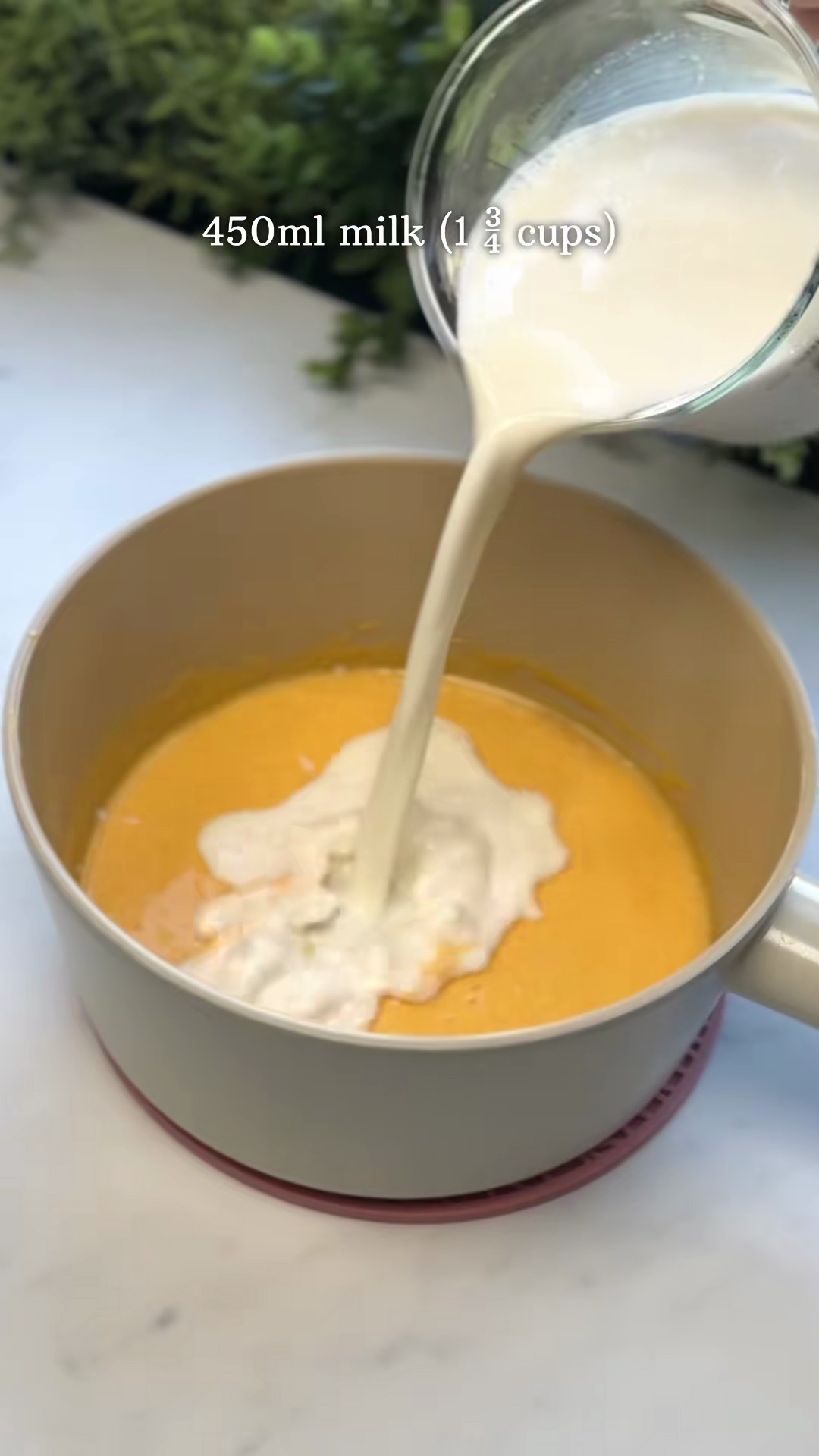 Preview10m
Preview10m PreviewPour the tempered egg mixture back into the saucepan with the remaining hot milk. Cook over medium heat, whisking continuously, until the custard thickens to a pudding-like consistency. It should coat the back of a spoon.Keep whisking to prevent the bottom from burning or sticking. The custard will thicken quickly once it reaches the right temperature.
PreviewPour the tempered egg mixture back into the saucepan with the remaining hot milk. Cook over medium heat, whisking continuously, until the custard thickens to a pudding-like consistency. It should coat the back of a spoon.Keep whisking to prevent the bottom from burning or sticking. The custard will thicken quickly once it reaches the right temperature. - 13Remove the custard from the heat. Stir in the 5g vanilla extract and 30g butter until the butter is completely melted and incorporated. Transfer the custard to a clean bowl, cover the surface directly with plastic wrap (to prevent a skin from forming), and chill in the refrigerator for at least 2 hours, or until completely cold and firm.2h
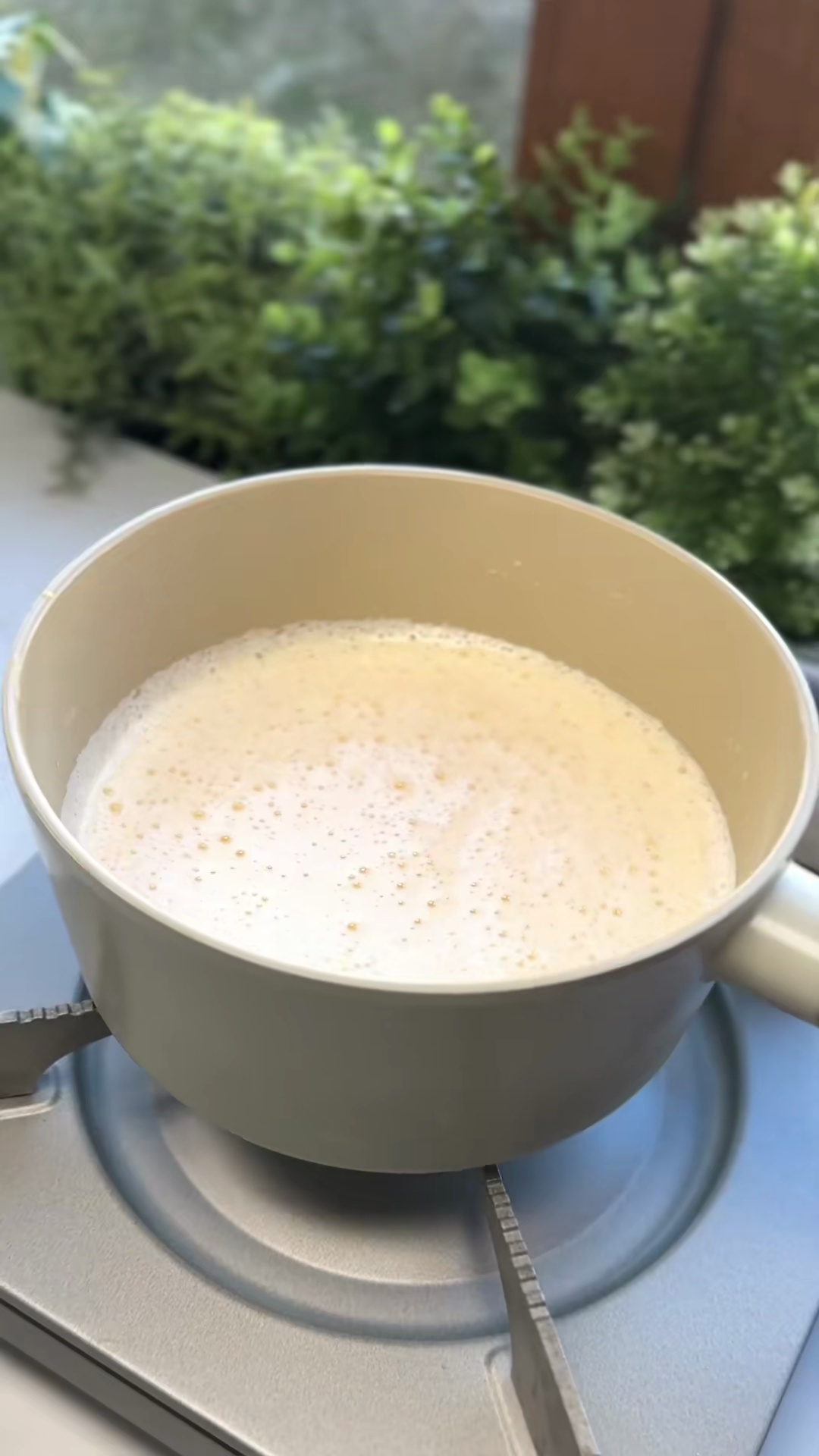 Preview2h
Preview2h PreviewRemove the custard from the heat. Stir in the 5g vanilla extract and 30g butter until the butter is completely melted and incorporated. Transfer the custard to a clean bowl, cover the surface directly with plastic wrap (to prevent a skin from forming), and chill in the refrigerator for at least 2 hours, or until completely cold and firm.Chilling is essential for the custard to set properly for piping.
PreviewRemove the custard from the heat. Stir in the 5g vanilla extract and 30g butter until the butter is completely melted and incorporated. Transfer the custard to a clean bowl, cover the surface directly with plastic wrap (to prevent a skin from forming), and chill in the refrigerator for at least 2 hours, or until completely cold and firm.Chilling is essential for the custard to set properly for piping. - 14Once the donuts are cool and the custard is chilled, use a small paring knife or a skewer to make a small incision in the side of each donut. Fit a piping bag with a long, thin pastry tip (or simply cut a small corner off the bag) and fill it with the chilled custard. Insert the tip into each donut and pipe in the custard until the donut feels adequately filled.15m
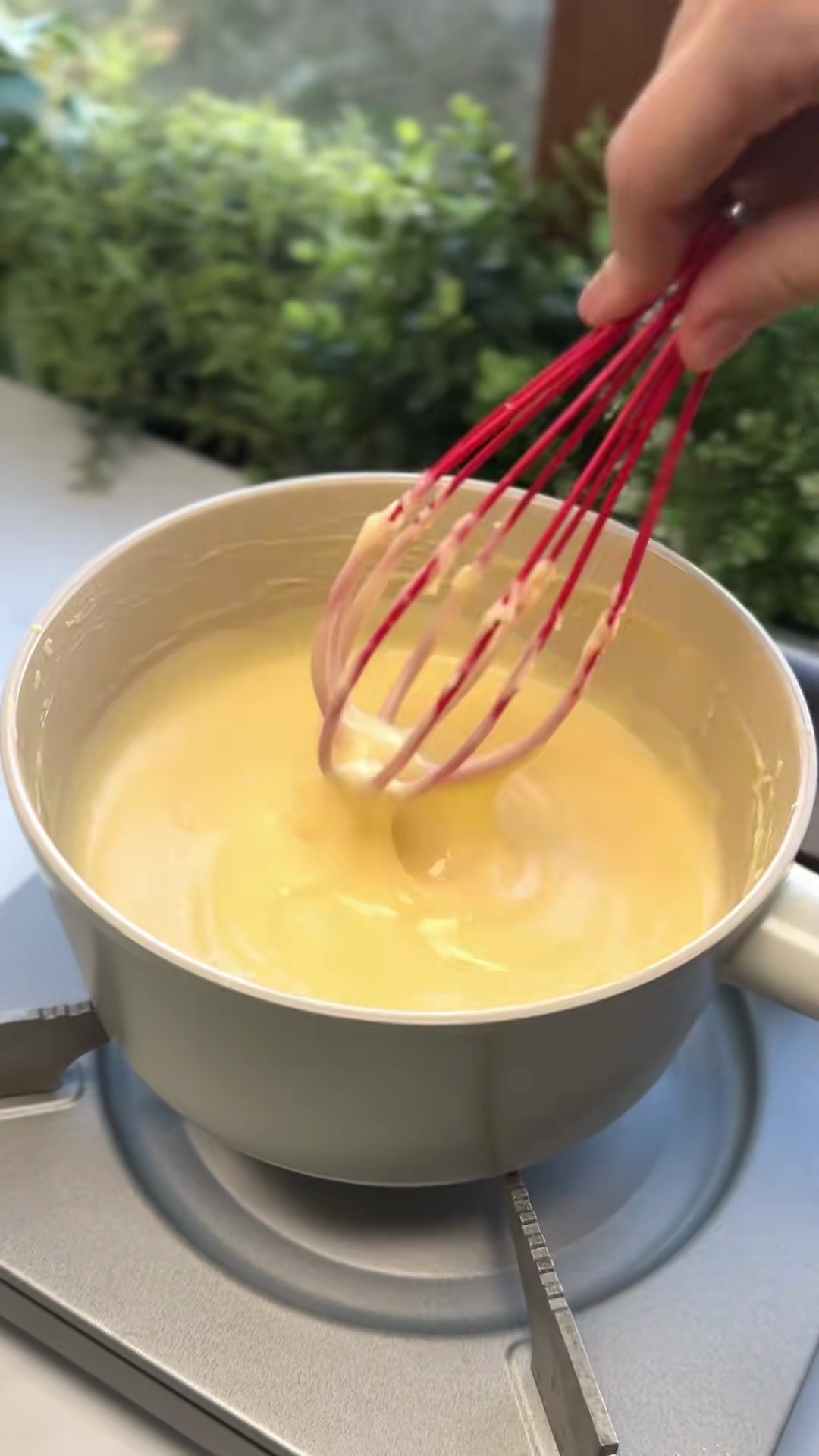 Preview15m
Preview15m PreviewOnce the donuts are cool and the custard is chilled, use a small paring knife or a skewer to make a small incision in the side of each donut. Fit a piping bag with a long, thin pastry tip (or simply cut a small corner off the bag) and fill it with the chilled custard. Insert the tip into each donut and pipe in the custard until the donut feels adequately filled.Don't overfill the donuts, as the custard might burst out. Aim for a generous but controlled amount.
PreviewOnce the donuts are cool and the custard is chilled, use a small paring knife or a skewer to make a small incision in the side of each donut. Fit a piping bag with a long, thin pastry tip (or simply cut a small corner off the bag) and fill it with the chilled custard. Insert the tip into each donut and pipe in the custard until the donut feels adequately filled.Don't overfill the donuts, as the custard might burst out. Aim for a generous but controlled amount. - 15For decoration, dust the filled donuts with powdered sugar, or apply a simple glaze of your choice. Serve immediately or store in an airtight container in the refrigerator.5m
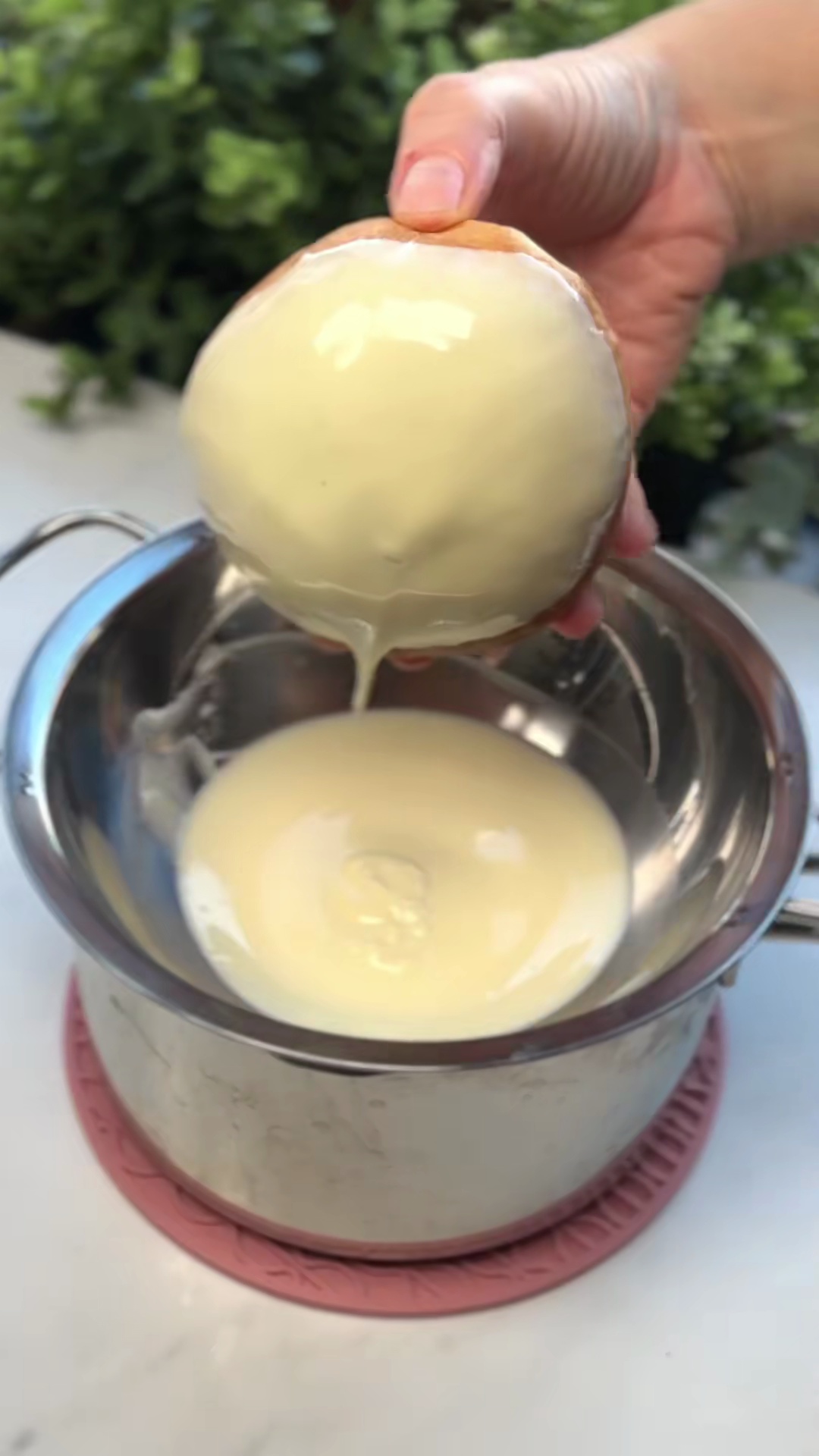 Preview5m
Preview5m PreviewFor decoration, dust the filled donuts with powdered sugar, or apply a simple glaze of your choice. Serve immediately or store in an airtight container in the refrigerator.Custard-filled donuts are best enjoyed fresh, but can be refrigerated for up to 2-3 days.
PreviewFor decoration, dust the filled donuts with powdered sugar, or apply a simple glaze of your choice. Serve immediately or store in an airtight container in the refrigerator.Custard-filled donuts are best enjoyed fresh, but can be refrigerated for up to 2-3 days.
💡 Tip: Click on any step to mark it as completed and track your cooking progress!
🍽️More Recipes


10m
Rainbow Fruit & Yogurt Parfait


320m
Oreo & White Chocolate Cheesecake


57m
Mini Apple Pies


17m
The Easiest Nutella Dessert


46m
Homemade Classic Sponge Cake


195m
Easy Layered Chocolate Ice Cream Dessert


290m
Lotus Crepe Cake with Honey Cream for Rosh Hashanah


75m
Most Moist Chocolate Cake (One-Bowl Recipe)


65m
Classic Bread Custard


101m
Easy Milky Dream Cake
